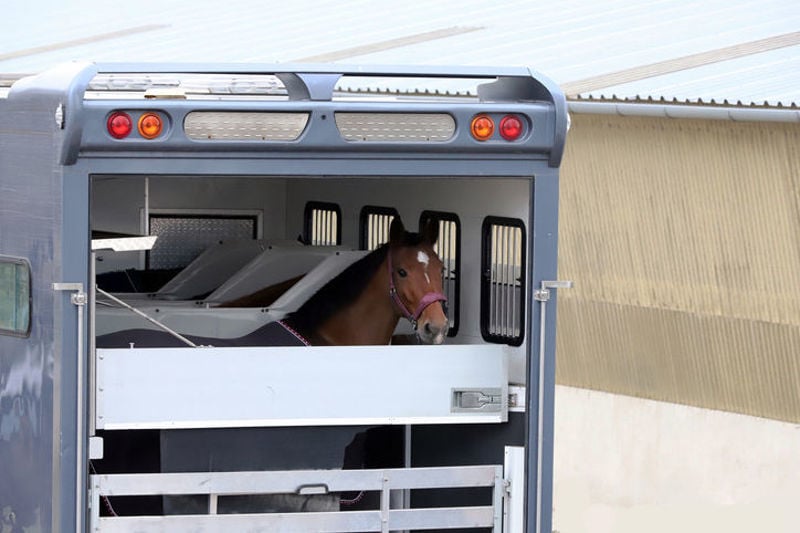Do you struggle to get your horse to eat or drink whilst travelling or at shows? Does your horse get stressed when travelling? Here is some helpful advice to keep your horse calm, to ensure they don’t get dehydrated and to reduce the risk of gastric sensitivities and digestive issues whilst away from home.
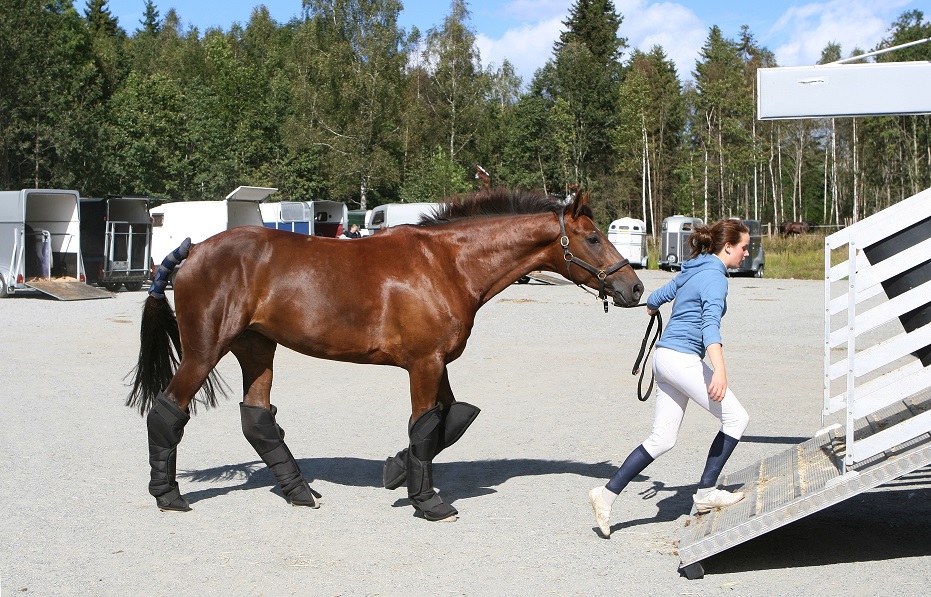
Even if you horse seems more than happy to jump into your lorry or trailer and doesn’t make a peep whilst on your journey, they will still be undergoing a degree of stress during travel. This can be caused by factors such as strange noises, temperature changes, loss of balance, separation from other horses and even being in close proximity to unfamiliar horses. Another issue for many owners is horses who don’t eat or drink whilst travelling especially over long journeys. In these cases, weight loss and dehydration can occur which increases the risk of digestive upset and damage to the delicate areas of the digestive system.
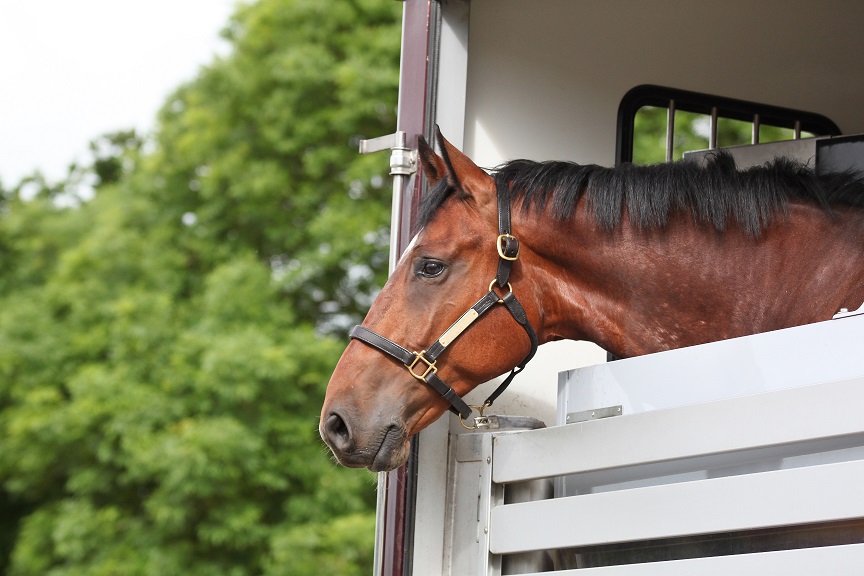
Offer good quality forage to your horse while travelling
Offering good quality forage is important to keep the gut functioning, however some horses can be a bit fussy or picky when it comes to eating whilst travelling. Offering a choice of hay or haylage before, during and after travel is important, if your horse is still reluctant to eat then try offering an alternative such as chopped grass, chaff, or a soaked mash/beet pulp.
The importance of hydration
Offering a mash, such as soaked sugar beet pulp, can also be beneficial to horses who drink very little or not at all as this will help to keep them hydrated. Alternatively, wetting feed down more than usual is another good way to increase water uptake. Horses who are reluctant to eat their hay whilst travelling could be more tempted if it is lightly soaked in some molasses to improve palatability, this will also aid hydration. Again, the addition of a small amount of apple juice to your water might help fussy drinkers.
Adding electrolytes either to your horse’s feed or water will encourage them to drink more to keep them hydrated and healthy. This is especially important for horses who are likely to sweat more such as those in medium to hard work or those being exercised in hot weather. The use of electrolytes before and after travelling could help horses who are unwilling to drink, however, fresh drinking water should be offered on a regular basis.
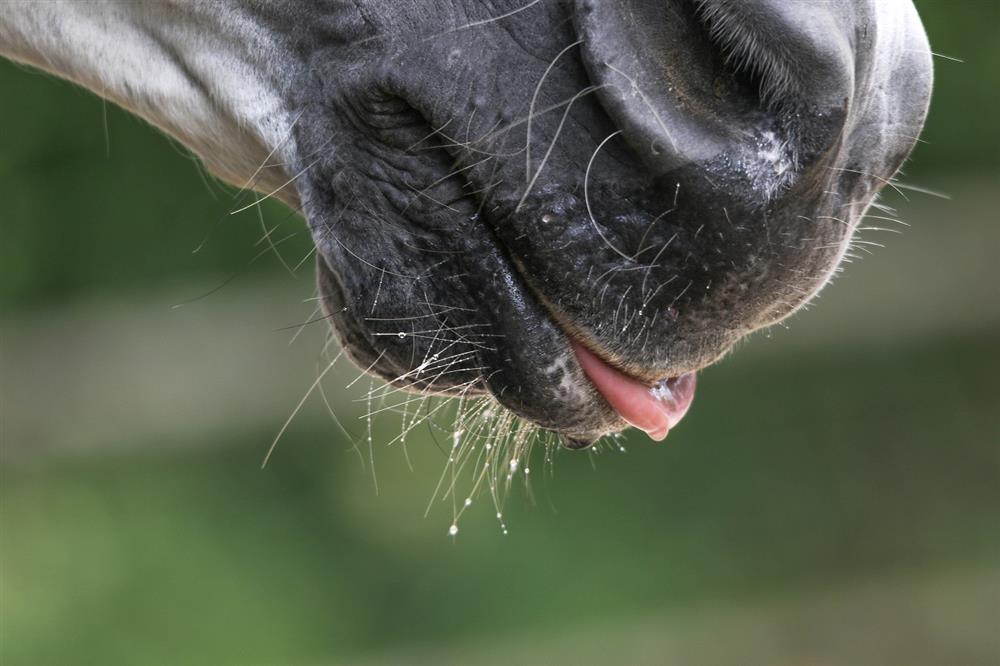
Supporting your horse's digestive health
Horses are designed to eat a high-fibre diet and are hind gut digesters, therefore using a digestive aid that contains pre and pro-biotics will encourage a healthy population of good bacteria in the gut and thus optimise digestion. Feeding your horse in a way that supports their digestive health will help to line the stomach with a protective layer whilst maintaining a healthy pH balance. Whilst many horses may require extra support to their diet on a daily basis, for others, support can benefit them even to be fed pre and post travel.
Monitor weight loss
Horses can have a tendency to lose weight when travelling as they will burn calories whilst keeping their balance, through stress and worry. Bear this in mind especially if you are travelling frequently, providing additional feed might be needed to maintain your horse’s weight. Weight loss will affect those who are particularly stressed more, so the use of calmer can be a useful tool to help relieve nervous tension and behaviour.
Ventilation is key
Even if your horse doesn’t sweat up whilst travelling, don’t forget that good ventilation is key to avoid respiratory issues that can occur when in a confined space.
Be prepared!
Finally, always carry plenty of water and forage as you never know if you might get stuck in traffic or breakdown. Adopting good management practices before, during and after the journey will help to keep your horse happy, healthy and maintain low stress levels.
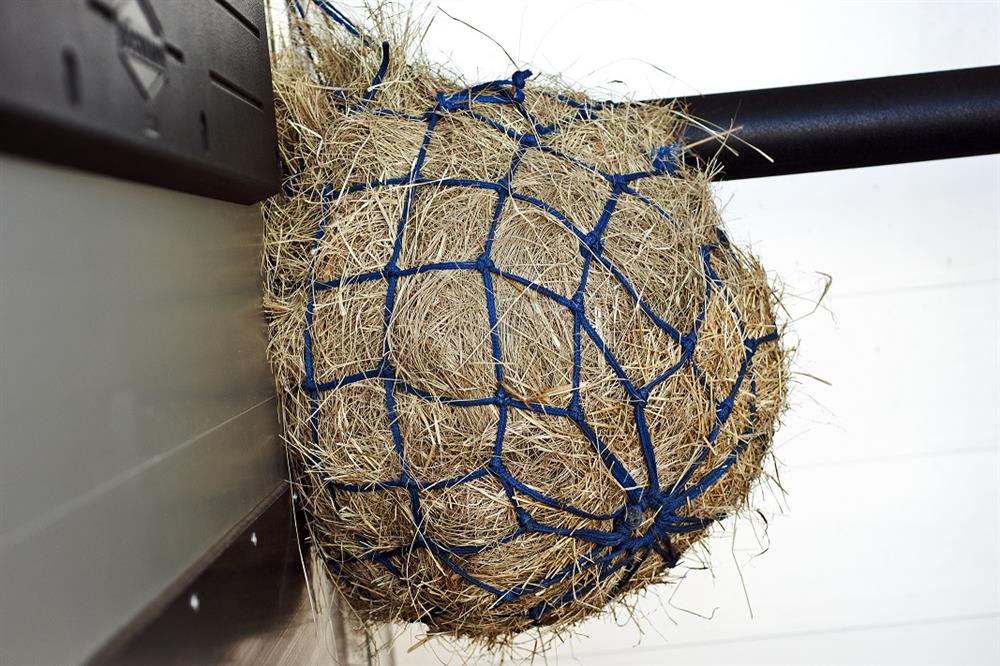
For any advice or questions you may have, please don't hesitate to reach out to our expert nutrition team. You can call 0800 585525 Monday-Friday 8:30am-5:00pm. Email [email protected], or send us a DM on social media.


